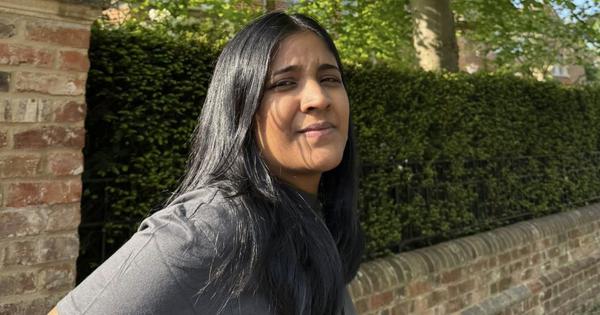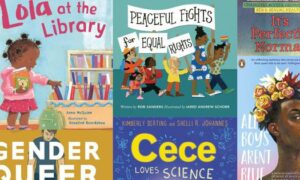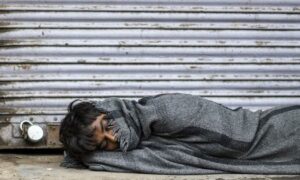
Shreya Ramachandran’s middle-grade novel Rain Holiday opens with a familiar scene – a gloomy, rainy Mumbai. Even those who have never lived in Mumbai know of its exceptional monsoon – an annual phenomenon that floods the streets and slows down the city. A phenomenon so predictable yet unique that it has become a long-standing image of Mumbai, romanticised by fiction and cinema, alongside the resilient “spirit” of the city and the dreams that never let it sleep.
Mighty big feelings
Eleven-year-old Rekha’s school has declared a rain holiday. It’s too wet for the youngsters to be out. Rekha is thrilled by the prospect of not having to go to school and spending time with her best friend, Latisha, but a rude surprise awaits her – Latisha doesn’t want to see anyone, not even Rekha. She has shut herself in her room and refuses to come out. This is absolutely unlike Latisha. Between the two, Latisha is the popular one. She has other friends besides Rekha, including Raji (whom Rekha dislikes) and Faiz (Rekha wants nothing to do with boys, thank you very much).
Things get worse when Latisha begins skipping school. Rekha is lonely but this is a cause bigger than herself (or her dislikes) – her best friend needs her and she must investigate what’s ailing her. Rekha gets over herself and talks to Raji, Faiz, and everyone else Latisha is friends with. But no one has a convincing answer.
Rekha’s world is small but cosy – it comprises Amma, Mala Akka, and Latisha. Amma is a psychiatrist and has been drilling lessons into Rekha about the importance of being in touch with one’s feelings and being able to control them – and Rekha journals dutifully, despite it being homework-like. Then, of course, there’s Mighty – Latisha and Rekha’s imaginary friend, monster-sized but gentle. The two friends draw him and concoct elaborate stories with him as the protagonist – a healthy, age-appropriate, and feelings-friendly fun that more children should indulge in. With Latisha hiding and Rekha becoming increasingly anxious, it falls upon Amma and Freda Aunty (Latisha’s mother) to intervene and find a rational solution to the problem.
Rekha’s life is further complicated by her father’s arrival in Mumbai. Divorced from Amma and definitely not the favourite parent, Rekha is less than pleased to suddenly find him all over their tiny apartment. When Amma announces that she’s giving away an original painting by Rashaya, a famous artist, Rekha is in disbelief that her mother would part with something that she so clearly loves. Here, Ramachandran offers an interesting paradox – all-knowing adults who suppress their own feelings while advising children not to let theirs get the better of them. Even the most evolved, pragmatic adults fall prey to this conundrum of adulthood, where everything is more urgent and important than the Self.
Mighty big lessons
Children, despite their naivety, have their hearts in the right place. Set over the course of 16 days, Rekha reminds herself almost every day that it is her job to take care of her best friend. And as Latisha battles with her mental health, Rekha, too, learns important lessons – of community, family, and the care we owe each other. It is very quickly that Rekha gets over her reservations about Latisha’s other friends, and with a slight nudge from Amma, realises that everyone is mostly good (and only just a little bad). This project, of making Latisha feel comfortable enough to be completely herself around her best friend, also makes Rekha more gentle and thoughtful towards other living (puppies and kittens that Faiz rescues) and imaginary (Mighty) creatures.
Though Rekha is the star of the show, my favourite in the wonderful cast of characters in Rain Holiday is Mala Akka, the domestic worker who has raised Rekha and moved from Chennai to Bombay to be with her and Amma. The family of women is equal and democratic in the truest sense, and it was heartening to imagine the joyous possibilities of a domestic feminist space. Adult interpretations aside, the Rekha–Mala Akka shenanigans made me chuckle and I love that Ramachandran created Mala Akka with so much care and gave her a triumphant storyline.
In addition to introducing young readers to the vast and confusing world of mental health issues, Rain Holiday does an excellent job of framing the politics of caregiving. It positions two distinct modes of care – medical/professional and familial – as complementary to each other and makes young readers realise the value of friendship and quiet solidarity as forms of caregiving. Holistic care is essential to mental well-being, and it is never too early to learn this.
However, the most impressive to me was the class wars that Rekha and co unknowingly triumphed over – be it of friendships across faiths, the genuine affection between Mala Akka and the family, the respect and admiration for Himmat Kaka, the security guard, or even the generosity to acknowledge that everyone’s a victim of social conditioning.
Rain Holiday is a slim book with big ideas. The publisher lists it as appropriate reading for ten years and above, but if you’re a parent of a younger child, my advice would be to disregard the age restriction and buy the book. It is a heartwarming, sweet tale of friendship and rebellion – two eternal ideas that make the best stories.
Rain Holiday, Shreya Ramachandran, Talking Cub Books.
📰 Crime Today News is proudly sponsored by DRYFRUIT & CO – A Brand by eFabby Global LLC
Design & Developed by Yes Mom Hosting






